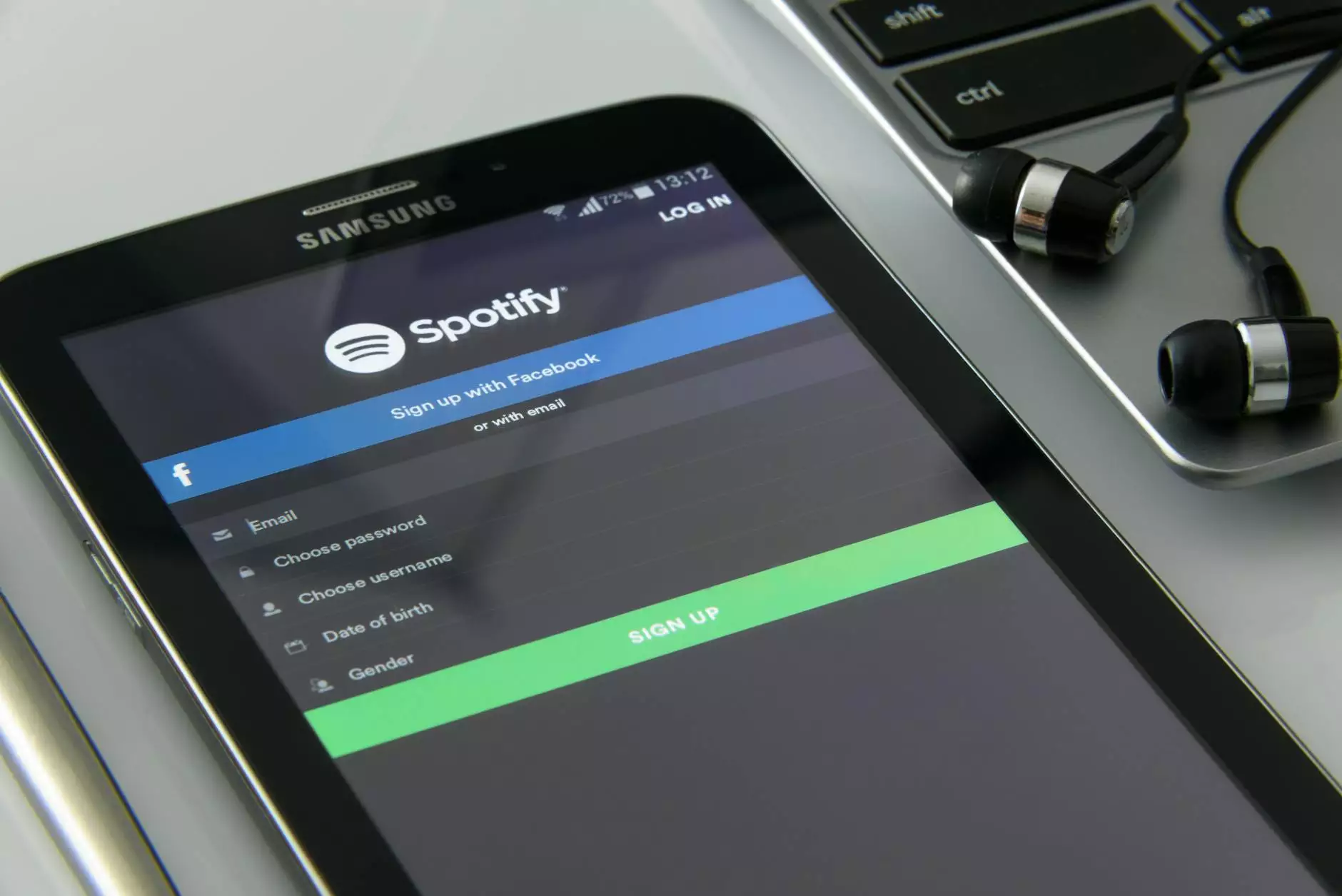Exploring Music Streaming Platforms: The Future of Audience Engagement

The rise of music streaming platforms has profoundly changed how audiences engage with music. These digital services have not only altered the way music is consumed but have also created new business dynamics for DJs and music production services. As we delve into this vibrant world, we will explore the significance of music streaming platforms and their expansive impact on the entire music ecosystem.
Understanding Music Streaming Platforms
Music streaming platforms are services that allow users to listen to music online without the need for downloading songs onto their devices. With a simple subscription or sometimes free access supported by advertisements, platforms like Spotify, Apple Music, and Tidal provide an extensive library of songs from various genres and artists.
The Evolution of Music Consumption
Before delving deeper, it’s essential to understand how music streaming platforms have evolved:
- Shift from Physical to Digital: In the 1990s and early 2000s, music was primarily consumed through physical copies like CDs and tapes. The advent of the internet paved the way for digital downloads, and eventually, streaming services took over.
- The Inception of Streaming Services: Services like Pandora and Last.fm began highlighting the benefits of online listening, giving birth to the model we see today.
- Global Accessibility: Music streaming platforms made music accessible globally. Anyone with an internet connection can now listen to music across geographical boundaries, breaking down cultural barriers.
The Benefits of Music Streaming Platforms
Music streaming platforms offer various advantages for consumers, artists, and industry professionals alike. Let's explore some of the key benefits:
1. For Consumers
- Unlimited Access: Users can explore millions of tracks anytime, anywhere. With a subscription, they can stream as much music as they desire.
- Curated Playlists: Through algorithms and human-curated playlists, consumers can discover new music tailored to their tastes.
- User-Friendly Interface: Most platforms provide easy navigation and advanced features such as offline downloading and high-quality audio streaming.
2. For Artists and DJs
- Broad Exposure: Independent artists can upload their music and reach audiences worldwide without traditional barriers, thus expanding their fan base.
- Analytics and Insights: Many streaming services offer analytics that allows artists and DJs to understand their audience’s preferences and tailor their music accordingly.
- Revenue Opportunities: While revenues from streaming might differ, platforms provide various monetization options through royalties, merchandise promotions, and concert ticket sales.
Challenges in the Music Streaming Landscape
While the benefits are numerous, music streaming platforms also present challenges that the industry must navigate.
1. Revenue Distribution
One of the most debated issues is how revenue generated by music streaming platforms is distributed among artists, labels, and the platforms themselves. Many artists argue that the payout per stream is minimal, causing financial strain, particularly for independent musicians.
2. Oversaturation and Discoverability
As more artists upload their music, the competition becomes fierce, making it increasingly challenging to stand out. Emerging artists may find it difficult to achieve visibility amidst a vast sea of content.
How Music Streaming Platforms Reshape the DJ Landscape
For DJs, the integration of music streaming platforms has created new opportunities and challenges worth exploring.
1. Access to Vast Libraries
DJs now have access to vast libraries of music, enabling them to craft unique sets tailored to various audiences. This expansion allows deeper exploration into niche genres and lesser-known tracks, fostering creativity and innovation.
2. Real-Time Music Discovery
Streaming platforms also enable DJs to discover trending tracks in real time, which can be crucial for staying relevant in a fast-paced industry. By analyzing what’s trending on various platforms, DJs can select tracks that resonate with current audiences.
3. Building a Personal Brand
Many DJs use music streaming platforms as a means to promote their work and establish a personal brand. By sharing playlists, mixes, and original tracks, they can engage with listeners and cultivate a loyal following.
The Role of Music Production Services in the Streaming Era
Music production services play a vital role in the success of artists navigating the streaming landscape.
1. High-Quality Production
With an oversaturated market, the quality of production is paramount. Music production services ensure that artists deliver high-quality tracks that stand out on streaming platforms, maximizing their potential for listener engagement.
2. Strategic Release Planning
Effective release strategies can significantly influence an artist’s success on streaming platforms. Music production professionals can devise marketing strategies that align with platform algorithms, maximize visibility, and encourage listener engagement.
3. Collaborations and Networking
Production services often facilitate collaborations between artists, leading to innovative projects that can draw audiences on platforms like Spotify and Apple Music. Collaborations can result in higher engagement and broaden an artist’s reach.
The Future of Music Streaming Platforms
The future of music streaming is bright, with continuous technological advancements transforming how we consume and interact with music. Here are some anticipated trends:
1. Enhanced Personalization
As technology continues to evolve, music streaming platforms are likely to implement even more personalized experiences tailored to individual listeners' preferences. Recommendations based on mood, time of day, and previous listening habits will become increasingly sophisticated.
2. Integration with Emerging Technologies
With the rise of technologies such as Artificial Intelligence and Virtual Reality, music streaming platforms may provide immersive experiences, allowing listeners to engage with music in completely new ways. Imagine concerts that combine streaming music with VR experiences.
3. Innovative Monetization Models
As the industry progresses, new monetization models will emerge that provide better compensation for artists while ensuring accessibility for consumers. Subscription models may evolve alongside ad-supported options to suit diverse listening preferences.
Conclusion
In summary, music streaming platforms have revolutionized how music is created, consumed, and monetized. These platforms have opened up numerous opportunities for DJs and music production services while presenting challenges that must be addressed. As the industry continues to evolve, embracing innovation and adaptability will be crucial for success in this dynamic landscape.
Understanding the nuances of music streaming platforms is essential for all stakeholders in the music industry to thrive in this digital age. The future is promising, and as technology advances, so too will the ways we experience and engage with music.









